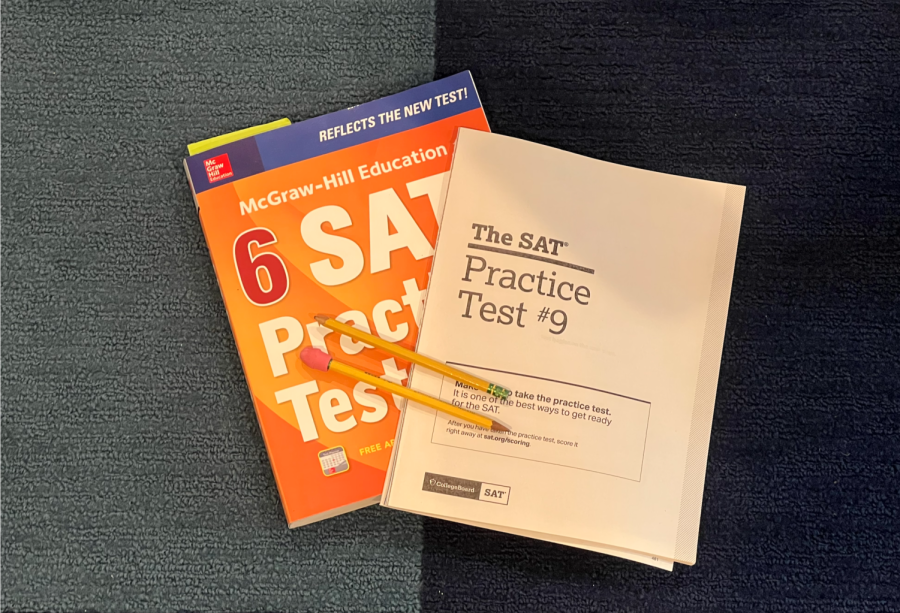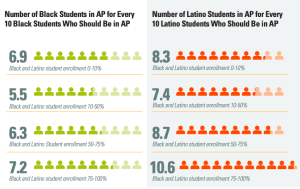Keep the test optional policy for Juniors
Carol Queiroz argues that the test optional application policy should remain in place for juniors who have been just as affected by the pandemic as past students.
December 16, 2021
During the last year and a half, the COVID-19 pandemic has brought an array of new challenges for high school students visiting and applying to colleges. No college campus visits, less access to standardized test preparation resources, and an increase in financial difficulties — on top of adapting to attending school online — has made applying to college during the time of Covid next to impossible, unavoidably impacting an entire generation of students. However, many colleges empathized with the stressed-out students and implemented new flexible policies to take a little weight off of everyone’s shoulders, one of which being the controversial test optional admission policy.
When a college operates with the test optional admission policy, it means that a student is not required to submit their Scholastic Aptitude Test (SAT) or American College Test (ACT) score as part of their application. A decision supported by the College Board, numerous colleges have started offering this since 2021. This policy has been beneficial to various students worldwide, as it allowed standardized testing to be much less stressful during a time where stress levels were through the roof. But now, as the pandemic is beginning to calm, many schools have been considering whether to redact or keep this policy for the students of the class of 2023, class of 2024 and beyond. As a member of the class of ‘23, I strongly believe that colleges should remain test optional for at least another year or two.
Today’s sophomores and juniors have been just as affected by the pandemic as the classes of 2021 and 2022; we have all had our emotional and mental well being radically tampered with, we have all had to make the leap to adapting to an entirely different way of learning and we have all been robbed of a regular high school experience. I personally have never experienced a full year of high school without the pandemic, as school shut down my freshman year.
So, I ask the question: why would it be fair to offer the support of the test optional policy to only some of the students affected by the pandemic and not others? Just because the current sophomores and juniors will not be taking standardized tests during the height of the pandemic does not mean our scores will be as good as pre-pandemic.
Furthermore, academics and mental stability were not the only thing that Covid affected. According to a poll from The Wallstreet Journal, 40 percent of U.S. households reported facing serious financial difficulties during the COVID-19 pandemic. And a good SAT/ACT score doesn’t come cheap. To help boost your score, you need practice textbooks, tutors, access to test prep resources and more. SAT prep textbooks alone can cost at least $40, only beginning the expenses of these tests. While there are free online SAT/ACT courses with companies such as Khan Academy, private test prep companies offer customized test preparation depending on the client which have proven to be much more effective in point gain. For example, The Princeton Review, a private test-prep company based in New York City, advertises that the students who enroll in their private tutoring course can get 1,500+ points on the SAT for the price of $2,700. Not only will you get a private tutor, but also a tutoring manager and a guaranteed minimum 250 point gain. Applerouth, another popular private test-prep company, offers personalized one-on-one sessions with a custom-matched tutor and unlimited practice test for the starting price of $1,300. Plus, there are various fees that have to be paid for registering to take the test. For example, each time you take the SAT, you have to pay a fee of $55 and an additional $12 fee to send the test scores to colleges. Many families simply do not have the financial means to offer their children help with their standardized testing, and the pandemic has made this issue exponentially worse. And this problem is ongoing, as many families are still struggling to get back up on their feet.
There are many valid reasons why students and college administrators want to steer away from the test optional policy. Low-scoring students are much less likely than high-scoring students to submit their SAT/ACT along with their application, which in turn inflates colleges average SAT/ACT scores and makes admission more selective. Additionally, it is natural for high-scoring students to want to be compared with lower test scores to make their application stronger. However, this policy is not only taking a massive weight off of many students’ and parent’s shoulders, but it also gives students the opportunity to focus on their academics, extracurricular activities and college essays to strengthen their application. The policy also allows colleges to accept students who are below-average standardized test takers but otherwise great students without negatively impacting their institutional statistics.
The test optional admission policy has helped so many students and families during the peak of the pandemic, and it can still provide the same relief and assistance to more people who need it just as much. I would encourage all colleges and universities to deeply consider the experiences of today’s sophomores and juniors to see that they are also just as valid and deserving of this policy being in place.


















